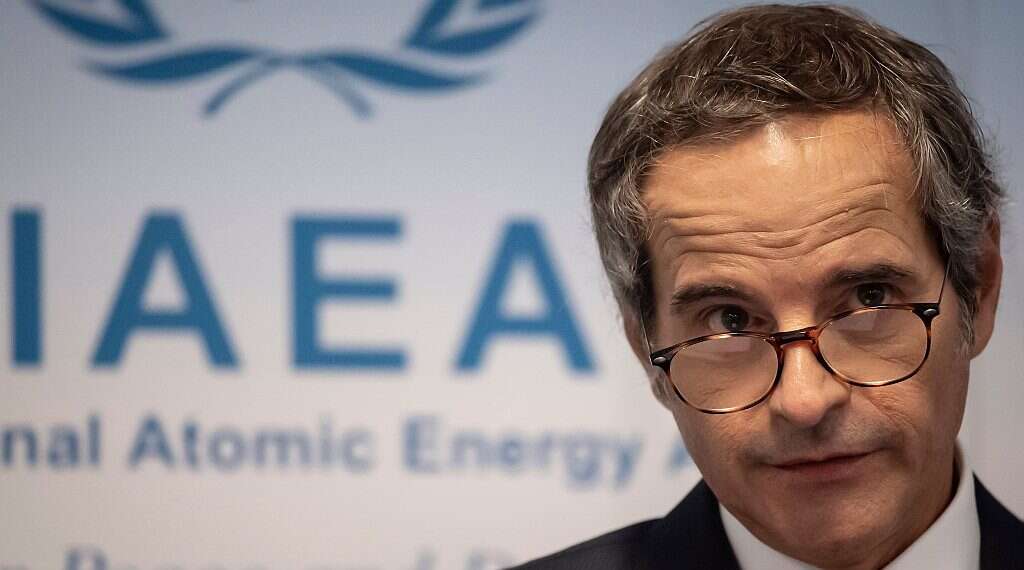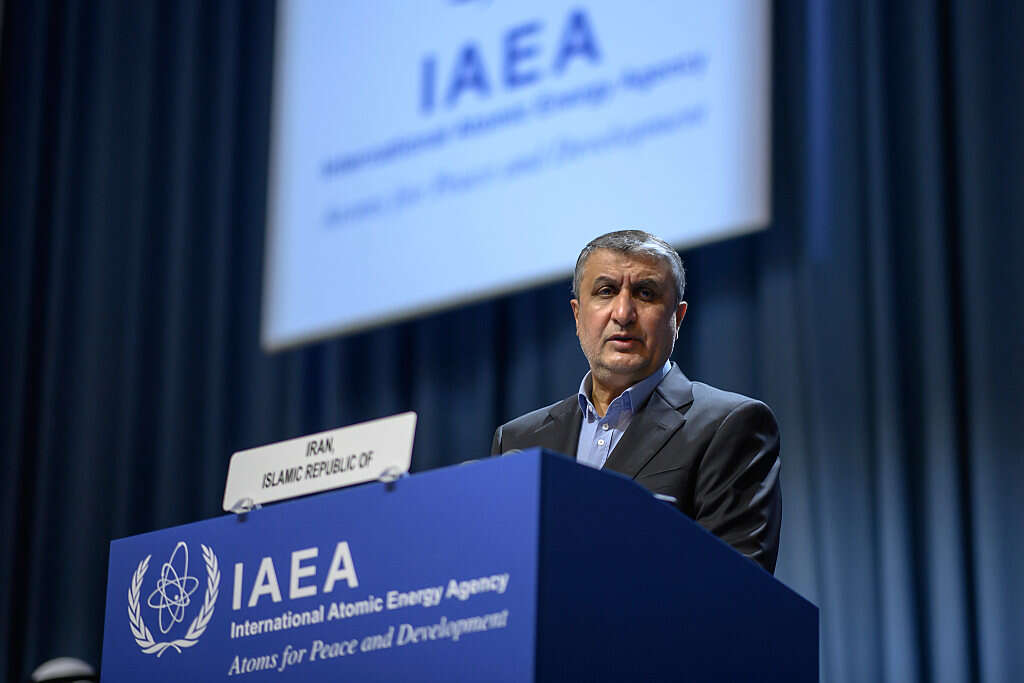by ILH Staff
Iranian President Ebrahim Raisi's hardline government's refusal to communicate or allow International Atomic Energy Agency inspectors access to a centrifuge production site in Karj "is worrisome," Rafael Grossi says.
 |
Director of the International Atomic Energy Agency Rafael Mariano Grossi | File photo: EPA |
The International Atomic Energy Agency's ability to properly monitor Iran's nuclear sites has been compromised, Director-General Rafael Grossi said Saturday.
In an interview with NBC News, Grossi said that Tehran has consistently refused to allow the IAEA to repair surveillance equipment damaged during a drone attack on a key nuclear facility.
He noted Iran has cited its ongoing investigation into the incident that crippled the facility run by Iran's Centrifuge Technology Company in Karaj, northwest of Tehran, as the reason for denying IAEA inspectors to replace the damaged cameras on the site.
Iran accused Israel of sabotaging the site. The agency said that the blast destroyed one of its cameras and heavily damaged another, but it has not disclosed how many cameras it mounted at the site.
Last month, Iran acknowledged that it had removed several damaged surveillance cameras installed by the IAEA at the Karaj site.
Grossi warned that Tehran's refusal to cooperate with the IAEA on the matter means it cannot account for what the Iranians have been doing there.
Iran's refusal to allow IAEA inspectors back to the Karaj site was peculiar given that it has allowed the IAEA to service cameras placed in other sites, he noted.
Without access to the TESA site, the IAEA's monitoring program in Iran is "no longer intact. ... It hasn't paralyzed what we are doing there, but damage that has been done, with a potential of us not being able to reconstruct the picture, the jigsaw puzzle," Grossi says.
According to Grossi, another cause for concern was the fact that he has been unable to establish any type of direct communication with officials in hardline President Ebrahim Raisi's government since he was elected in June.
"I have never spoken to the new foreign minister," Grossi told NBC. "I hope to be able to have the opportunity to meet with him soon because it's very important … so when there is a problem when there is a misunderstanding when there is a disagreement, we can talk about it."

NBC's interview with the UN's chief nuclear monitor was held as Grossi was visiting Washington as the fate of the Iran nuclear deal hangs in the balance.
The US and world powers have been attempting to resume the negotiations on the revival of the 2015 nuclear deal, but the Islamic republic does not seem the share their sense of urgency.
Iran insists that its nuclear efforts are strictly for civilian and peaceful purposes, but Israeli intelligence – shared with world powers and the International Atomic Energy Agency – shows that Tehran has and continues to maintain a nuclear military program.
Israel deems the latter an existential threat and has stated that it will not allow Iran to become a nuclear threshold state.
Iran's violations of the 2015 nuclear deal – officially the Joint Comprehensive Plan of Action – have rendered it hollow. In 2018, then-US President Donald Trump pulled out of the deal. President Joe Biden has stated that he seeks to formulate a new deal with Iran, stressing he plans to exhaust all diplomatic options vis-à-vis Iran before devising a "Plan B" – widely perceived to mean a military option to stop Iran's nuclear program if diplomacy fails.
"We are prepared to turn to other options if Iran doesn't change course," Secretary of State Antony Blinken said this month during a joint appearance with Israeli Foreign Minister Yair Lapid.
ILH Staff
Source: https://www.israelhayom.com/2021/10/24/iaea-chief-admits-ability-to-monitor-key-iranian-nuclear-site-compromised/
No comments:
Post a Comment